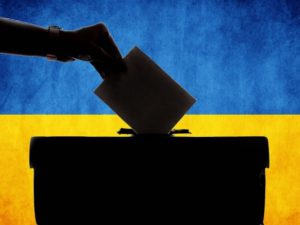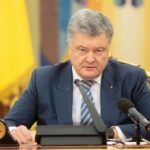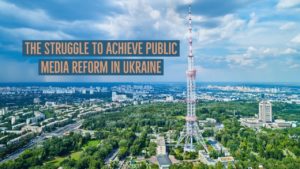
Tech 4 Dem
Ukrainians fed up with entrenched corruption and hungry for change are likely to elect Volodymyr Zelenskiy, a comedian with no previous political experience, as their next president in a run-off vote on Sunday, Reuters reports.
“The comedian capitalized on a broad rejection of the country’s political elites and Mr Poroshenko’s widespread unpopularity among the electorate,” said Agnese Ortolani, an analyst at the Economist Intelligence Unit. “Mr Zelenskiy’s policy platform — beyond a focus on anti-corruption issues and a broad, pro-Western agenda — remains unclear,” she said, adding: “Our core forecast is that Mr Zelenskiy will defeat Mr Poroshenko in the second round.”
Ukraine: the home of Europe’s hot war is the Petri dish where Russian information operations are tested before being unleashed on the West, Pulitzer Center analyst Nina Jankowicz notes. Ahead of the presidential election, the campaigns themselves have become combatants in the information war, she writes for The Atlantic:

Credit: Wikimedia Commons
Ukraine’s Parliament is considering two draft laws that would criminalize the “dissemination of false information” and introduce temporary bans on outlets spreading disinformation during election periods, as well as further empower the government to block websites it considers a threat to national security. At the same time, the authorities are investing in critical thinking and media-literacy programs that have seen success: Students exposed to a training program implemented by the Ukrainian Ministry of Education in partnership with an American NGO, IREX, were twice as likely to be able to identify hate speech and 18 percent more likely to spot disinformation than were peers who did not go through the program.
 “The significance of these achievements, however, will be in doubt if the government ushers in an era of political censorship in the name of countering Russian information warfare,” Jankowicz suggests.
“The significance of these achievements, however, will be in doubt if the government ushers in an era of political censorship in the name of countering Russian information warfare,” Jankowicz suggests.
“Poroshenko has not delivered that justice which Maidan was all about,” Aivaras Abromavicius, a former economy minister who became an adviser to Zelenskiy, told Reuters.
“And my main complaint to President Poroshenko is that he gave the hope that the country can be governed differently, and he buried that hope, unfortunately.”
The Atlantic Council and Stanford University’s Center on Democracy, Development, and the Rule of Law host a discussion on “Ukraine’s Future Leaders on the Frontlines of Change.”
Speakers:
 Francis Fukuyama, director of Stanford University’s Center on Democracy, Development, and the Rule of Law;
Francis Fukuyama, director of Stanford University’s Center on Democracy, Development, and the Rule of Law;- Former Ukrainaian Trade Representative Nataliya Mykolska, visiting professor at the Spogli Institute for International Studies;
- Ivan Prymachenko, visiting practitioner at the Stanford Spogli Institute for International Studies; Oleksandra Ustinova, visiting practitioner at the Spogli Institute for International Studies;
- Melinda Haring, editor of the Atlantic Council’s “UkraineAlert” [and former NED Penn Kemble fellow];
- John Herbst, director of the Atlantic Council’s Eurasia Center.
3:30 p.m. April 18, 2019. Venue: Atlantic Council, 1030 15th Street NW, 12th Floor, Washington, D.C. RSVP: Travis Horne, 202-778-4993, press@atlanticcouncil.org







